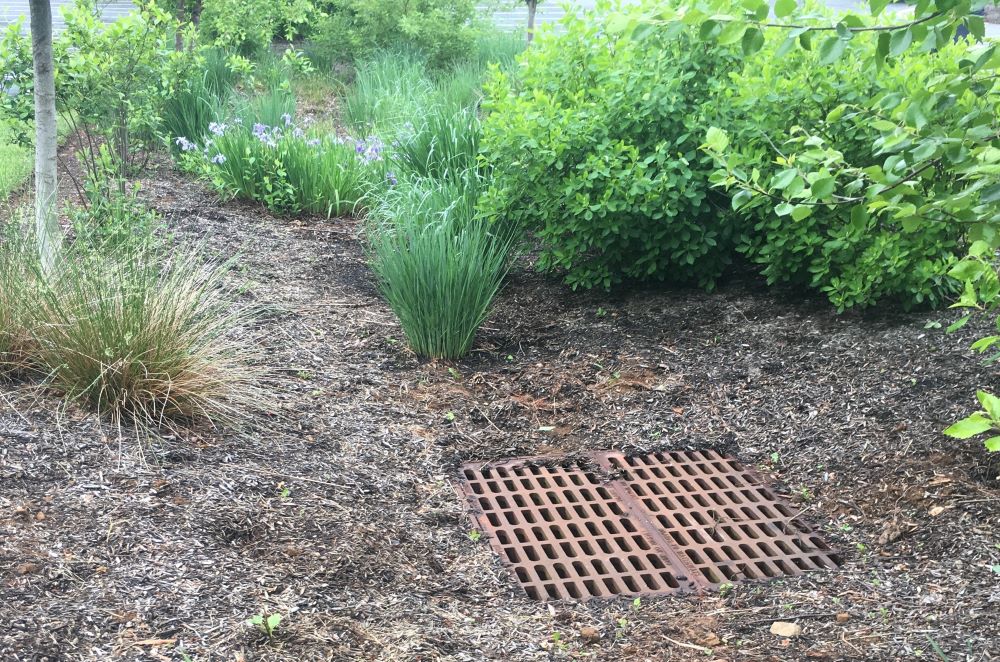Mon – Fri: 8:30 – 4:00
Closed from 12–1pm
Ewing, NJ 08628
The Ewing Environmental Commission makes the case for keeping your local storm drains clear of debris. Here they demonstrate the simple task of maintaining/cleaning our storm drains to reduce flooding, water pollution, prevent infrastructure damage and reduce risks to our health.
You too can make a difference in your own backyard to help reduce stormwater runoff and keep our waters clean.
Employ Sustainable Landscaping Practices
Reduce Runoff
Properly Use and Dispose of Hazardous Products
Dispose of Yard Waste Properly
Don't Litter
Animal Waste
Ryan Rollero, Director of Public Works, email: rrollero@ewingnj.org
Please contact Ryan Rollero, Director of Public Works and MS4 Coordinator for more information and for questions regarding Ewing's stormwater management program.
The MS4 (Municipal Separate Storm Sewer System) Coordinator is responsible for ensuring compliance with the Township’s National Pollutant Discharge Elimination System (NPDES) Permit for Stormwater Discharges and the Joint Pollutant Reduction Plan (PRP). He plans, organizes, and administers the permitting, monitoring, inspection, enforcement, pollution prevention, and data management activities of the Stormwater Program in accordance with Federal, State and local laws and the MS4 permit. Coordinates the investigation of storm water run-off, industry related storm water quality, and water quality problems, complaints and violations of the MS4 Permit and related storm water regulations, initiates and conducts site visits and communicates with property owners and recommends solutions and/or mitigation measures, coordinates preparation of violation notices as necessary.
Municipal Stormwater Pollution Protection Plan for the Township of Ewing, adopted June 2005 and describes how we implement the permit requirments in regards to our stormwater program.
Stormwater Pollution Prevention Plan for the Township of Ewing, Revised to December 2020. November 2020.
SP3 - Stormwater Pollution Prevention Plan: Ewing Township. Updated May 30, 2024
Check the New Jersey Department of Environmental Protection website to learn more about what you can do to improve our water quality.
NJ Green Infrastructure
A NJ DEP site that explains how development practices affect our watersheds and promotes green stormwater practices.
Clean Water New Jersey
A NJ DEP site that educates the public as to what they can do to promote and protect our waterways in NJ.
NJ Stormwater
The NJDEP's stormwater web site for stormwater management professionals and permittees. Here you'll find links to technical information, guidance materials, forms, and applications.
New Jersey Stormwater Best Management Practices Manual
Developed by the New Jersey Department of Environmental Protection, in coordination with the New Jersey Department of Agriculture, the New Jersey Department of Community Affairs, the New Jersey Department of Transportation, municipal engineers, county engineers, consulting firms, contractors, and environmental organizations.
The Watershed institute
Leads the fight to preserve our region’s water and land. They developed an Enhanced Model ordinance based on the NJDEP's model ordinance to assist local communities in creating their ordinances.
These are the ordinances Ewing has in regard to stormwater pollution. Click on each one to learn more about how each protects our stormwater.
Map of Ewing stormwater outfalls provided by the NJDEP. (Click on the map for a larger version.) This map serves as a temporary listing of the outfalls until Ewing ArcGIS mapping is completed according to the updated State of New Jersey stormwater regulations.
